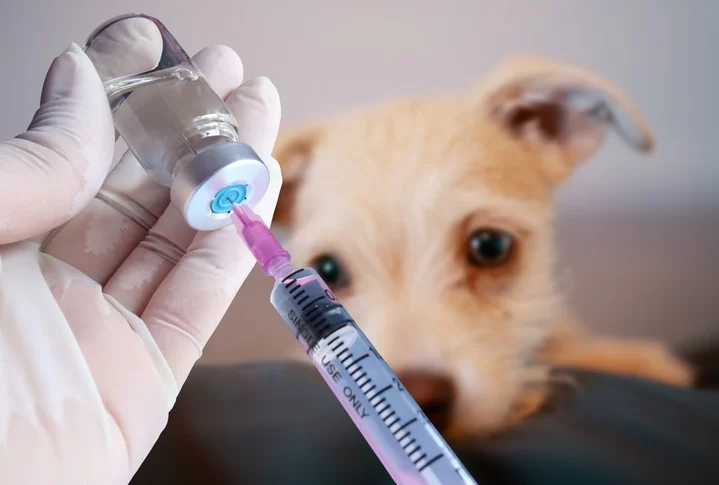Understanding the Importance of Regular Pet Vaccinations
As a pet owner, I know how much we cherish our furry friends and how important their health and well-being are to us. One of the most crucial steps in ensuring that our pets live long, healthy lives is keeping up with their vaccinations. Regular pet vaccinations are not just a formality; they’re a necessary part of maintaining your pet’s health and preventing the spread of infectious diseases. In this article, I’ll dive deep into the benefits of regular pet vaccinations and why they should be a priority for every pet owner.
The Role of Vaccinations in Preventing Diseases
Pet vaccinations play an essential role in protecting our pets from several contagious diseases. As a pet parent, you’ve likely heard of common vaccines such as those for rabies, parvovirus, distemper, and hepatitis. These vaccines work by stimulating your pet's immune system to fight off infections and prevent disease development. When your pet is vaccinated, they develop antibodies that are crucial in defending against harmful pathogens.
For instance, the rabies vaccine is one of the most important vaccines for pets, as rabies is a deadly disease that can be transmitted to humans and other animals. By vaccinating your pet against rabies, you’re not only protecting them but also contributing to public health. Similarly, vaccines for diseases like parvovirus and distemper can significantly reduce the risk of serious illness and even death in pets.
Building a Strong Immune System for Your Pet
Regular vaccinations are key to strengthening your pet’s immune system. Vaccines essentially “train” your pet’s immune system by mimicking the infection without causing the disease itself. This way, your pet’s immune system learns how to recognize and fight the real disease if it encounters it later on.
In addition to preventing life-threatening diseases, vaccinations also help in preventing the spread of illnesses to other animals. This is especially important if your pet interacts with other animals at parks, vet clinics, or even during grooming appointments. Vaccinations help maintain herd immunity, ensuring that fewer animals contract and spread diseases.
Protecting Your Pet's Health in the Long Run
By staying on top of your pet’s vaccinations, you are ensuring their long-term health and comfort. Diseases like kennel cough and Lyme disease, for example, can be prevented with specific vaccines. The good news is that keeping up with your pet’s vaccinations can also save you significant veterinary costs in the future. Preventing illness is far more cost-effective than treating a disease after it has taken hold of your pet’s body.
When Should You Vaccinate Your Pet?
As every pet’s needs may vary based on age, breed, and health status, it’s important to work closely with your veterinarian to determine the right vaccination schedule. Puppies and kittens typically start their vaccinations at around 6-8 weeks of age, followed by booster shots at regular intervals. Adult pets also need to keep up with their vaccinations, but the schedule may be adjusted as they age. It’s also important to note that certain vaccines may need to be administered more frequently based on your pet’s lifestyle and risk of exposure to diseases.
Veterinarians will usually recommend core vaccines that are essential for all pets, as well as non-core vaccines that are specific to certain regions or lifestyles. For instance, if you live in an area where Lyme disease is common, your veterinarian may recommend the Lyme vaccine for your dog.
A Personal Story: How Vaccinations Saved My Dog's Life
Not too long ago, my dog, Max, had a close encounter with a potentially life-threatening disease. Max had always been up to date with his vaccinations, and when he contracted a minor respiratory illness, I was relieved to know it wasn’t anything severe. His vaccinations had protected him from the worst possible outcomes. Had he not been vaccinated, he could have developed serious complications or even succumbed to the disease.
This experience reminded me of the importance of staying diligent with vaccinations. I’m glad I made sure Max was protected, and I encourage all pet owners to follow through with regular vaccination schedules. The peace of mind it brings is invaluable.
The Cost of Skipping Vaccinations
While some pet owners might consider skipping vaccinations to save money or time, the consequences can be dire. A lack of vaccinations can result in your pet contracting serious, sometimes fatal, diseases that could have easily been prevented. The cost of treating these diseases is far greater than the cost of preventive vaccinations, not to mention the emotional toll it can take on you as a pet owner.
Moreover, skipping vaccines can also put other pets at risk, especially in communities where animals regularly come into contact with one another. In some cases, outbreaks of preventable diseases can occur, and these can spread quickly among unvaccinated pets.
How Veterinary Care Plays a Key Role
Veterinary care is crucial in ensuring your pet remains up to date with their vaccinations. Regular visits to your vet allow them to not only administer vaccines but also monitor your pet’s overall health. Your veterinarian can assess any potential risks to your pet’s health, such as lifestyle factors, and adjust their vaccination schedule accordingly.
In my experience, working with a trusted veterinarian like the team at Hidden Brook Veterinary has made all the difference. Their expertise and personalized care have been invaluable in keeping my pets healthy and protected against preventable diseases.
Vaccinating Your Pet: A Small Effort for Big Rewards
As pet owners, it’s our responsibility to give our pets the best possible chance at a healthy, happy life. Regular vaccinations are an easy, effective way to protect your pet from a range of serious diseases. The small effort it takes to stay on top of your pet’s vaccination schedule is well worth the peace of mind and the long-term health benefits it provides.
If you’re unsure of your pet’s vaccination schedule or need to get your pet vaccinated, I highly recommend reaching out to a trusted veterinary service like Hidden Brook Veterinary. They can guide you through the process and help you keep your pet protected and healthy.












